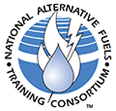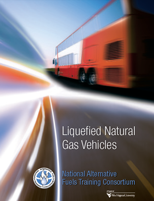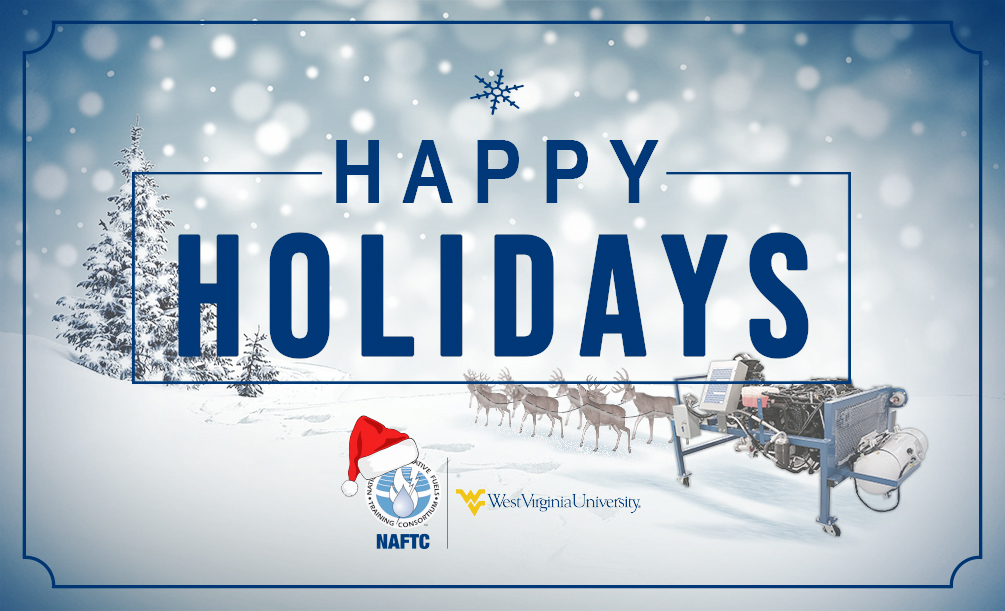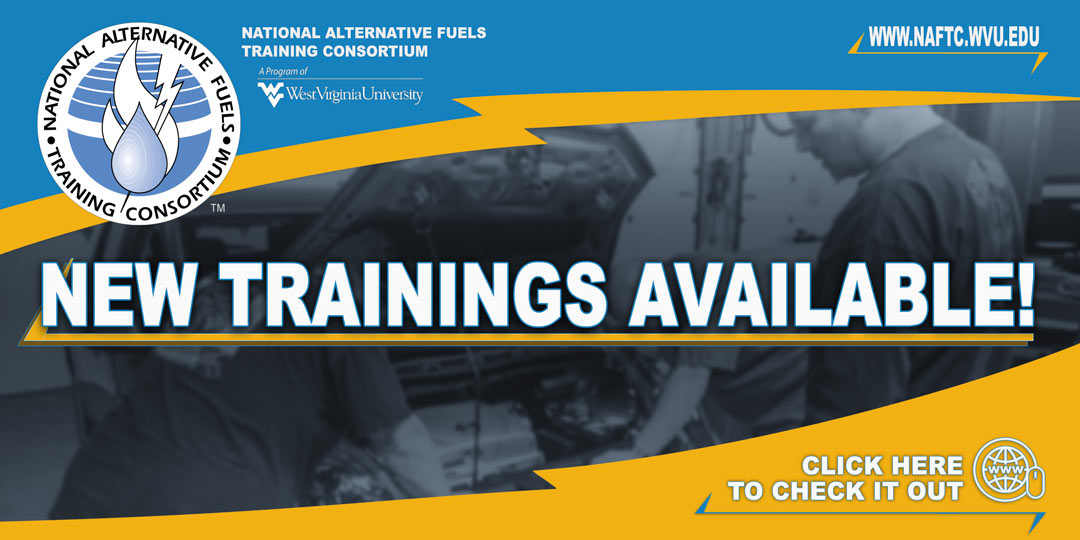Liquefied Natural Gas Vehicles
This three-day course focuses on the understanding of the cryogenic state that liquefied natural gas (LNG) resides in, respect for LNG in regards to all safety aspects, and fuel range in comparison to gasoline and diesel.
The AFV technician needs to know everything that is currently applicable to heavy-duty vehicles, along with new technology to deal with the LNG fuel system, engine, electronics, and exhaust.
SCHEDULE A TRAINING or call us at ![]() (304) 293-7882 for more information.
(304) 293-7882 for more information.
Course materials provided:
- Participant Manual – ISBN 978-1-933954-15-8
- Includes review questions and learning activities
- Each module of the Participant Manual contains text, illustrations, explanatory figures and tables, module review questions, and a list of key terms and abbreviations
Course designed for:
- Automotive Technician
- Fleet Managers
- Secondary Education
- Post-Secondary Education
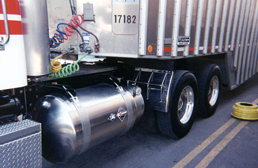

Taught by certified NAFTC instructors, this three-day course will enable you to:
- Explain the sources and processing of gaseous fuels.
- Describe the components of an LNG fuel system and explain how each operates.
- Explain LNG technology and calculate the correct air-fuel ratio to achieve best power, lowest emissions, and greatest fuel economy.
- Describe Otto and diesel cycle engines and explain how combustion differs from gasoline CNG
- Learn the concepts of pressure, density, and volume in describing, measuring, and handling gaseous fuels.
- Explain the operation of the electronic control module (ECM) and the components that connect to it.
- List personnel and shop safety procedures and describe the appropriate responses to emergencies such as fire, gas leakage, and collision.
- List the major policies and regulations pertaining to the installation, operation, and inspection of gaseous fuel vehicles.
Course outline:
- Day One
- Alternative fuel vehicles
- Pressure, temperature, and density
- Day Three
- Vehicle group activities
- Safety, maintenance, and inspection
- Information for fleet managers
- Day Two
- Fuel system components
- Electric control systems
- Ignition requirements and controls
- Combustion and engine design
